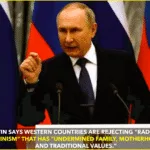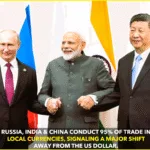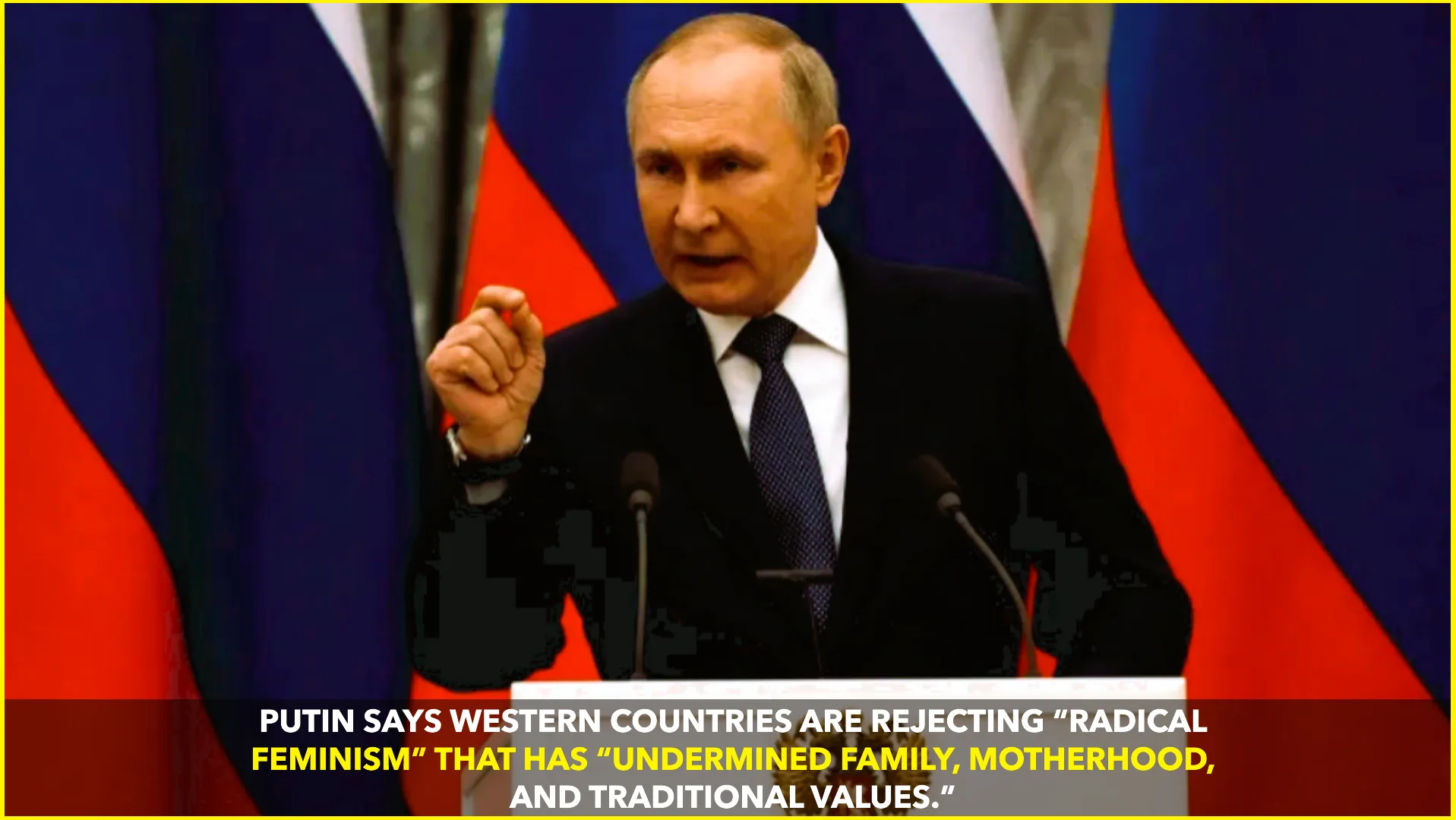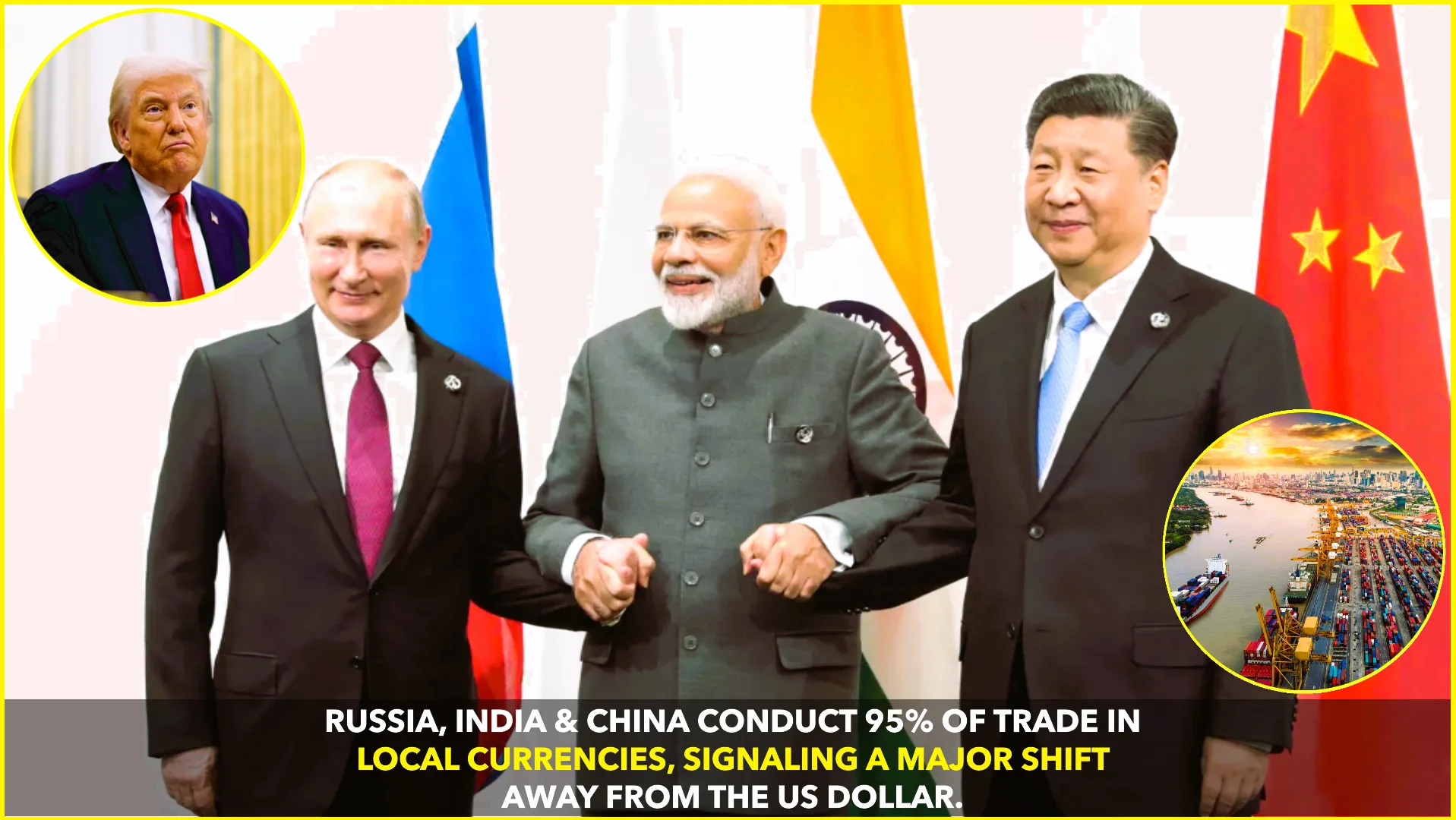Moscow: Russian President Vladimir Putin declared it a “really good thing” that people in Western countries are starting to reject what he called modern feminist ideology, arguing that it has “undermined family, motherhood, and traditional values.”
Speaking during a televised policy forum in Moscow, Putin said the feminist movement in the West “went too far,” evolving from a legitimate call for women’s equality into a tool of “social engineering and cultural decay.” He suggested that the growing resistance, particularly among younger generations, shows that “Europe and America are beginning to wake up from a dangerous illusion.”
Putin’s remarks come at a time when Russia has been actively promoting conservative social policies and positioning itself as a global defender of “traditional values.” In his speech, he praised the revival of what he called “natural family values,” contrasting them with what he sees as moral decline in Western societies.
According to a report by Reuters, Putin has increasingly linked Russia’s identity to family and cultural conservatism, emphasizing traditional gender roles and criticizing Western liberalism. He has previously said that the West’s attempts to “blur gender distinctions” are destroying societal foundations.
Experts say the comments also align with Russia’s long-term demographic agenda. With the country’s population declining, the Kremlin has repeatedly encouraged women to have more children and discouraged what it views as “Western-inspired gender activism.” A BBC News analysis noted that state media in Russia often portray feminism as an attack on motherhood and patriotism, themes that resonate strongly with conservative audiences.
Putin’s statement echoed broader sentiments among conservative thinkers across the West, many of whom have criticized modern feminism for straying from its original purpose. In the United States and parts of Europe, a cultural backlash against “radical gender ideology” has been gaining visibility — particularly among younger men who feel alienated by contemporary gender discourse.
However, human rights advocates warn that such rhetoric can fuel regressive policies. A CNN report highlighted that in Russia, women’s rights groups have faced increasing pressure, with several organizations being labeled as “foreign agents.” Activists argue that the government’s push for “traditional values” often sidelines genuine gender equality and silences dissenting voices.
In his Moscow speech, Putin argued that the West’s current social struggles are proof that Russia’s approach is the more stable one. “We see the results of their so-called progress,” he said. “They have lost the meaning of family, the sacredness of motherhood, and the respect for natural differences between men and women.”
According to The Guardian, Putin has long used cultural and moral issues to contrast Russia with Western societies, presenting his leadership as the defender of civilization against what he describes as “decadent ideologies.” This strategy appeals both to domestic supporters and to conservative movements abroad that share his worldview.
The Russian leader’s remarks also tap into global cultural debates. Across Europe and the U.S., discussions about feminism, gender identity, and traditional values have intensified. While some agree that aspects of modern feminism have become divisive, others argue that equality and freedom of choice remain under threat in many societies.
Sociologists point out that the trend Putin describes — a supposed rejection of feminism — may not be as widespread as he suggests. Surveys in the U.S. and Europe show that while opinions differ on certain feminist ideas, the majority of young people still support gender equality and women’s empowerment. Yet, the conversation is evolving, with growing emphasis on redefining what feminism means in today’s world.
Ultimately, Putin’s remarks reveal how cultural narratives are increasingly being used in geopolitical discourse. By claiming that the West is “waking up” from feminism, he positions Russia as a moral alternative — one that embraces tradition over modern liberalism.
As Al Jazeera noted, this rhetorical framing serves both domestic and diplomatic purposes: it strengthens national unity at home while appealing to conservative audiences abroad who share skepticism toward Western progressivism.
Whether the “global tide” is truly turning against modern feminism remains uncertain. But Putin’s message makes one thing clear — the battle over gender, values, and ideology has become a defining front in today’s global political landscape.










